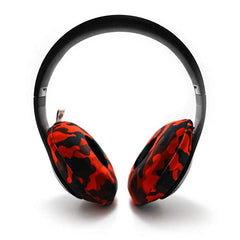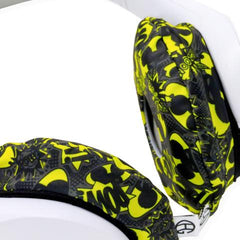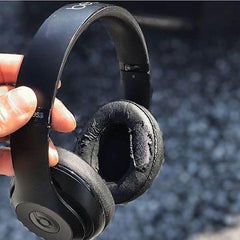How Does Exercise Affect Sleep?

We’ve probably all got anecdotal evidence on how exercise affects our sleep. Perhaps you ran a half-marathon and later that evening collapsed exhausted into bed. Maybe the weights you lift an hour before bedtime mean you won’t nod off for ages afterwards. Yoga could be your secret to a great night’s sleep. Spin classes might keep you wired until midnight…
Exercise and sleep are vital to our well being, and if you fall behind in one then you may find that you fall behind in the other, too, but how exactly does exercise affect sleep and is the evidence really anything more than anecdotal?How much sleep and exercise should we be getting?
Most health organisations recommend that adults get 150 minutes of moderate aerobic exercise each week to stay healthy.
If you’re not suffering from a chronic health condition, then neither is particularly difficult to achieve. Aside from the fact that it’s as easy to skip the gym as it is to watch just one more episode of Breaking Bad on Netflix.Does Exercise Affect Sleep?
Yes.
That’s the short answer but it’s more complicated than that. Exercise affects sleep in a number of ways but, surprisingly, you may not see immediate improvement if you suffer from sleeplessness in general. In some research studies, it took around 16 weeks for participants to start seeing the benefit of exercise on their sleeping patterns. A little discouraging, sure, but given how important sleep is to our general health it’s worth persevering with.

According to CNN, around 108 million Americans suffer from insomnia.
Insomnia is a chronic sleep disorder in which a person habitually struggles to either fall or stay asleep.
It’s a problem largely attributed to the invention of the electric light bulb. Before we were able to switch on lights, there was a far greater distinction between night and day, between the time to be awake and the time to be asleep. Before backlit phone screens, before televisions and tablets, before catch-up TV, car headlamps and streetlights, our ancestors had a routine that worked with the body’s natural rhythm. Worryingly, too, is that in our 24-hour society, many of us are consciously choosing to sleep poorly.
Exercise has to be worth a shot, right?
One study from 2010 took 16 volunteers who were mostly in their 60s, who didn’t exercise and who had all been diagnosed with insomnia. The volunteers were split into two groups: the inactive who continued with a sedentary lifestyle and the others who were put on a moderate endurance exercise program. The second group exercised for 16-weeks in total. The short of it is that the group who’d been exercising regularly found that they slept better and that most nights were able to sleep for up to an hour longer than before they began the program.
That’s pretty awesome, right?
You might remember, however, that we wrote in the introduction that it may take up to 16 weeks to become noticeable and this group was why. Researchers found that for many weeks those in the active group recorded no change in how poorly they were sleeping each night. Dr Baron who ran the experiment was surprised by the initial results having expected see improvement. That improvement did come albeit sixteen weeks later and the delay surprised the researchers. Dr Baron did say, however, that as people with insomnia have a complicated relationship with sleep it does make them different to those living without the condition. This could account for why the results weren’t as expected.

Other studies have shown exercise as having a much quicker impact on sleep quality. For example, The National Institute on Aging researched people who did aerobic exercise up to 4 times per week at 75% of their maximum heart rate. It found that people said they had better sleep quality and felt more awake during the day. Additionally, aerobic exercise reduced the time it took to fall asleep by 14%.
How else can exercise affect sleep?
We already know that regular exercise can help improve mental health. Exercise increases the body’s production of two key neurotransmitters: serotonin and norepinephrine. These are feel-good chemicals that help regulate a person’s mood. They also help our brain adapt and respond to stress. For those of us who already work out regularly, the idea of the “runners high” isn’t just truth: it’s gospel. The fact that it fights the symptoms of (mild) depression, stress and anxiety probably won’t be news to you, either, BUT that those three things are among the biggest contributors to insomnia and sleeplessness means that exercise will be a particularly attractive choice to many over pills.
Why do we sleep better?
One factor could be to do with how body temperature rises during a workout and then falls once it’s done (and for some time afterwards). This signals to the brain that it’s time to sleep. If you exercise outdoors, too, then exposure to sunlight can help maintain a healthy balance between wakefulness and sleepfulness - something easily disrupted in the winter or when we spent the bulk of our day indoors.
Physical activity also helps increase the amount of time we spend in a deep sleep. Deep sleep is important in the growth of tissue, the regeneration of cells and in boosting the immune system. It also helps with both short and long-term learning.
But it’s not all good news.
Boo.
Researchers in one study found that exercising more could actually reduce the number of hours you sleep each night. According to a report in the Telegraph, it means that the relationship between sleep and exercise is more complicated than we thought.
Go figure.
The study followed 14 people and found that they actually slept 42-minutes longer on days of reduced physical activity and that when they did exert themselves, it turned out that they actually napped less. Dr Eliasson, of the Walter Reed Army Medical Centre in Washington DC, told the Telegraph that she believed it could come down to personality type. Some active people might simply be more highly strung and less able to wind down than their less active and more chilled counterparts.

Athletes have long discussed something called post-race insomnia, too.
Aside from being unable to sleep, it can make you feel hot, make you feel your heart beating faster and it can keep your mind racing. One explanation is that during intense exercise our bodies enter an aroused state. The longer we’re in this state - running a marathon for example - the longer it takes us to come out of it.
We also have to remember that during sporting activities we may be taking stimulants like drinks or gels and these often contain caffeine.
You’ll be warmer, too, and heat isn’t conducive to a restful night.
Big race? Big meet? Big performance? Big result? Then your mind will be racing long after you’ve stopped to lie down. It’s no wonder it can be tough to sleep in these circumstances especially when you feel physically drained.
That studies suggest exercise can be both a help and a hindrance shows that this is a complex issue and one that needs further exploration.
Web MD reported that back in 2013, The National Sleep Foundation studied the sleep habits of 1,000 participants. What they found was VERY interesting: 83% of people said they slept better when they exercised and the time that they worked out didn’t appear to have an impact, either.
Horses for courses, then.
What works for you? Drop us a message in the comments and let us know.
Exercise is super-important in helping to maintain now just sleep but mental health, too. Did you know that EarHugz gives £1 from every sale to the Mental Health Foundation?







